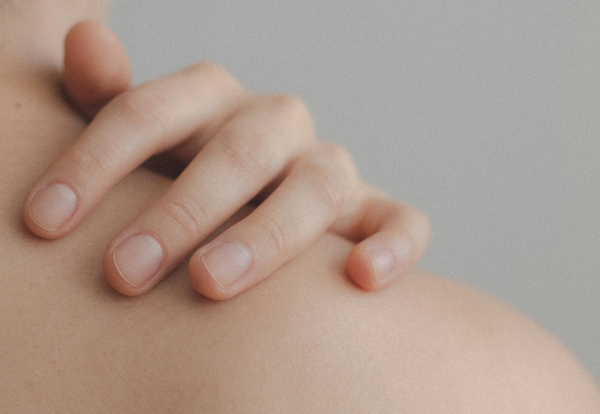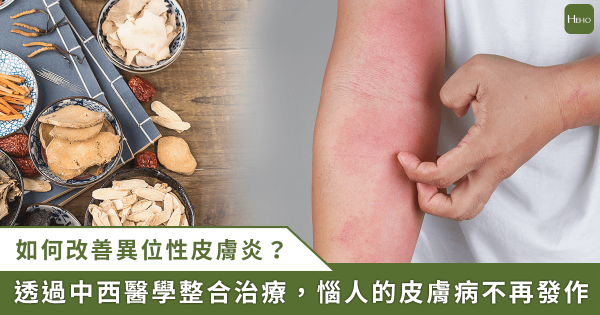Atopic dermatitis, an irritating and itchy skin condition, can affect both children and adults, causing significant distress. Increasingly, patients are opting for a combination of Traditional Chinese Medicine (TCM) and Western medicine for treatment, utilizing both internal and external approaches. This integrated therapy not only effectively alleviates symptoms but also reduces the side effects of medications, allowing patients to escape the relentless suffering caused by recurring dermatitis.
Dr. Lin Ying-ku, an attending physician at the Traditional Chinese Medicine Department of Keelung Chang Gung Memorial Hospital, explained that atopic dermatitis (also known as atopic eczema) is a common chronic skin disease characterized by symptoms such as dry skin, itching, and rashes. In severe cases, patients may develop skin lesions from excessive scratching. Western medicine typically relies on corticosteroids and immunosuppressants for treatment. While these medications provide rapid relief, some patients are concerned about long-term side effects, prompting more people to seek TCM as a complementary therapy to reduce their dependence on Western medication.
Dr. Lin pointed out that in TCM, atopic dermatitis is believed to be closely related to constitution, environment, and lifestyle habits. Many patients develop the condition during childhood, often associated with a family history of allergies such as allergic rhinitis or asthma. Although symptoms are generally expected to subside with age, in reality, many adults continue to struggle with recurrent flare-ups.
Multiple Triggers and Environmental Factors
The triggers of atopic dermatitis are varied and include genetic predisposition, climate changes, sweat retention, dry environments, excessive skin cleansing, contact with irritants, air pollution, and stress. Patients should be mindful of not only external environmental factors but also diet and emotional stress, as these can exacerbate the condition. Common allergenic foods such as seafood, eggs, and processed foods may worsen symptoms.
TCM treatments are tailored to individual patients based on age, symptoms, and constitution, with both internal and external herbal remedies. For example, patients with dry skin may be prescribed yin-nourishing and dryness-moistening herbs, while those with red and swollen skin lesions may be given heat-clearing and detoxifying herbs like coptis root and houttuynia, which have antibacterial and anti-inflammatory properties. These herbs can be administered internally or used as external applications to achieve therapeutic effects.
Integrative Medicine Provides Comprehensive Care
For severe cases, Dr. Lin recommends starting with Western medication for symptom relief, followed by the incorporation of TCM to reduce the side effects of Western drugs. For patients with weakened immune systems or high levels of emotional stress, TCM may include herbs like Astragalus to enhance immunity and expel pathogens.
TCM emphasizes holistic care by evaluating the patient’s constitution, environmental factors, and medical history to create a personalized treatment plan. This approach not only helps control skin inflammation but also improves the patient’s quality of life, allowing them to break free from the cycle of recurrent dermatitis.
Healthy Lifestyle Habits to Prevent Relapse
Dr. Lin concluded by reminding us that maintaining good lifestyle habits is crucial for preventing recurrence. Patients should keep their skin dry, choose comfortable cotton clothing, and avoid over-cleansing or using cleansers with irritating ingredients. Additionally, maintaining a positive mood and reducing stress can also help control the frequency of flare-ups in atopic dermatitis. Patients should keep their skin dry, choose comfortable cotton clothing, and avoid over-cleaning and using cleansers with irritating ingredients. (Photo source: Pexels)
Patients should keep their skin dry, choose comfortable cotton clothing, and avoid over-cleaning and using cleansers with irritating ingredients. (Photo source: Pexels)







